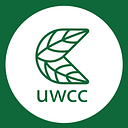A Guide to Off-Season Camping
By: Maya Rose Mittelstaedt
As the weather is cooling off and winter is on its way, camping might be the last thing on people’s minds, but off-season camping has huge advantages like quieter campgrounds, better hiking weather, no bugs, and a chance to escape busy school or work life. Although, there are many important considerations to keep in mind to have an enjoyable experience. Here are some tips for off-season camping.
STEP 1: Research
Do your research! Make sure you’ve covered all your bases before you leave so you can have a good time while you’re there. This means looking up the accommodations that are open in the park-like gatehouses, washrooms, and potable water. Many parks have limited resources and staff in the off-season and so not everything will be open. Figuring out what’s available at different parks helps to decide which park to go to and what you need to bring depending on your interests. You should also look up a map of the park because many will have backroads or unclear signage. And make sure you’ve checked the weather before you go so that you know what to expect. This ensures that you’ve packed the right equipment.
Equipment
Having the right equipment can make all the difference when you’re off-season camping. Some of the gear you use in the summer might not be warm enough for the colder seasons. Make sure you have a warm sleeping bag that’s meant for temperatures at least as low as what you’ll be expecting and an insulated sleeping pad to keep you warm against the chill coming off the ground. An air mattress will not protect you much from the cold but an insulated one will make a huge difference. Also, check to see if your equipment is three-season or four-season; lots of camping equipment is not meant to be used in the winter months. And test out your equipment before you leave.
Layers!
Layers are the best way to stay comfortable outside in the fall, winter, or spring. They allow you to bundle up when you’re cold or take a few layers off when you’re hot. Doing activities like hiking, paddling, biking, snowshoeing or skiing might make you surprisingly warm in cold and wet weather but the second you stop, you start to feel the cold temperatures again. Wearing layers gives you a lot of control over how warm or cold you’ll feel.
As well, make sure you have extra socks. You can never have too many socks when you’re camping because it’s so easy for them to get wet and make you uncomfortable and cold. A hat and mittens are also important to keep you warm.
Food
Make sure you bring extra food. Living outside and facing the elements all day uses up so much more energy than being inside and this is even more extreme when the temperatures are lower. Bring plenty of nutritious food that will keep you energized the whole day. Most parks are in remote areas and so do not have a grocery store close by if you run low on food.
Keep in mind that many parks have can and bottle bans in their backcountry which means you must avoid bringing canned or bottled food and drinks when doing trips in the backcountry. Cans and bottles are generally fine to bring in the regular campgrounds and picnic areas but still try to plan ahead and use as little single-use plastics as possible and dispose of your garbage appropriately.
Stay Hydrated
This tip might seem obvious but cold temperatures can trick your body into thinking you're less thirsty than you are. Make sure you’re conscious about the amount of water you’re drinking, especially when you’re doing physical activities, and carry a water bottle with you everywhere. Bring a water filter or water purification tablets if there is no available potable water near where you’re staying.
Other Tips
· It gets dark much faster in the off-season so make sure you leave yourself plenty of time to get back to your campsite before it gets dark
· Many animals are very active in the fall like moose and in the spring-like bears, so be on the lookout when you’re driving and hiking and do not get close to wild animals.
· Some parks and campgrounds have reduced fees in the off-season so be on the lookout for those locations.
· Don’t bring your own firewood with you because it could spread invasive species.
Most of all, enjoy yourself! Off-season camping can be a lot of fun as long as you’re being safe and responsible.
